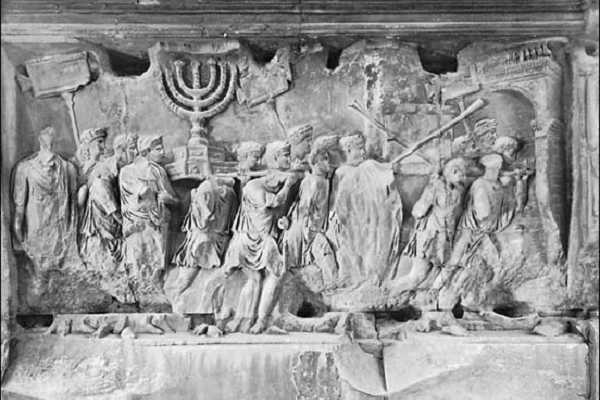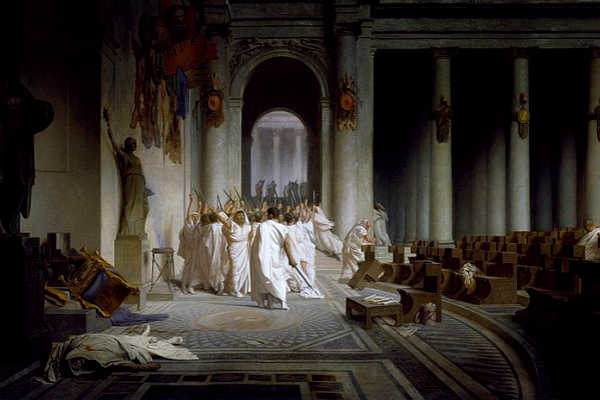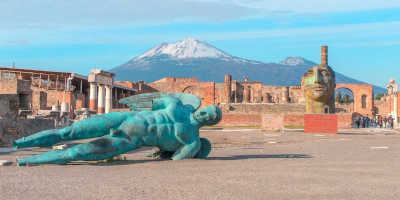Who was Julius Caesar?
Julius Caesar was one of the most important leaders of Rome. He is famous for reforming the Roman calendar to the Julian calendar, as well as proclaiming the famous line “I came, I saw, I conquered.”
Caesar was a renown general, politician and scholar in ancient Rome who conquered the vast region of Gaul and helped initiate the end of the of the Roman Republic and the rise of the Roman Empire. Although a dictator, popular with the military forces and the lower classes in Rome, Caesar was not an emperor. This status was only reinstated after his death, when his heir Augustus succeeded him. However, scholars believe that Caesar very much contributed to this change and other events that took place after his assassination.
Background
Julius Caesar was a Roman politician and general, who was responsible for turning the Roman Republic into the powerful Roman Empire. He was born in the year 100 BC, growing up quickly by becoming head of the household after his father’s death when he was sixteen, and becoming a husband at seventeen. He married Cornelia in 84 BC, the daughter of ally Marius. Together they had one daughter, Julia, the only legitimate child Casear had, and the only one he acknowledge. From historical reports, scholars believe Julia was very dear to Caesar, which was unusual when most rulers preferred to have a male heir. His marriage came under attack when general Sulla won the civil war against Marius, ordering Caesar to divorce Cornelia. Caesar refused and went into hiding. It wasn’t until his family intervened and persuaded Sulla to spare Caesar’s life that Caesar felt comfortable to come out of hiding, and join the army. This career path proved hugely successful for Caesar who became hailed as a military hero. And when Sulla died in 78 BC, Caesar returned to Rome in glory and success.
Rise to Power
He soon rose to political province, becoming an important Roman magistrate (65 BC) and providing the public with lavish games in the Circus Maximus, and later being elected Pontifex Maximus. This endeared him to the people of Rome as well as powerful men in the Roman government. This led to Caesar being elected as consul of the Roman Republic, the most powerful position at the time. After his year of power, he was selected to control four Roman legions, named the province of Gaul. However, Caesar soon wanted to become consul once more, as he became rivals with the leader Pompey. He ignored the Senate’s demand for him to give up with the command of his Gaul army, and instead marched his army to Italy, igniting a civil war between his supporters and those of Pompey. Caesar’s army pursued Pompey’s across Spain, Greece and finally Egypt, where Ptolemy VII had Pompey killed in a bid to impress Caesar. This is where Caesar started his love affair with co-regent Cleopatra. Though they never married, the pair’s long-term affair produced a son, Ptolemy XV Caesar, known as Caesarion. During his on and off relationship with Cleopatra, Caesar wiped out his enemies one by one allowing him to seize power in Rome. He took control on the city in 46 BC, becoming dictator of Rome for 10 years, outraging his political opponents.
How was Julius Caesar Killed?
Caesar’s dictatorship set the stage for the eventual end of the Roman Republic. Today he is still considered by some, a great leader and an interesting character, in terms of human nature. He introduced many reforms to the Roman government, which included; regulating the distribution of subsidised grain; reducing government debt; increasing the size of the Senate to represent more people; supporting military veterans; reforming Roman tax codes; and creating the Julian calendar. Whilst many of these reforms benefited the lower and middle classes of Rome, it was too much for the senate, who feared so much change as well as Caesar’s thirst for power. They feared he would soon become king, so on the 15th March, 44 BC, a group of senators conspired to assassinate Caesar. Ultimately the Senators believed Caesar’s power was too great and was slowly turning the Republic into an Empire. The plotters of the mutiny included Marcus Junius Brutus, Caesar’s second choice as heir, as well as Brutus, Caesar’s illegitimate son. With a group of over 60 men involved in the rebellion. It is said Caesar walked into the Senate, and was attacked, being stabbed 23 times before he bled to death. Unfortunately for Caesar’s conspirators this did not stop the on-coming changes. Instead, Caesar’s brutal end, done by those closest to him, made him a martyr, inciting a cycle of civil wars.
The Altar of Julius Caesar
After his death, Caesar’s body was washed and covered in perfume for the funeral, held a few days after his murder. The funeral brought a huge crowd to the Forum, much larger than expected. A large number of guards gathered around Caesar to protect his remains. His funeral fire went up in enormous flames, when his supporters showed their loyalty by throwing dry branches and clothing on his funeral pyre, before attacking the houses of Brutus and Cassius. This caused serious damage to the Forum. His cremated remains were then placed in his temple grave, close to where his daughter Julia was buried. His temple grave still remains to this day. Upon his death, 18-year old Octavian (Caesar’s nephew) became the first Emperor of Rome, known as Emperor Augustus, reigning from 27 BC – 14 AD.




















